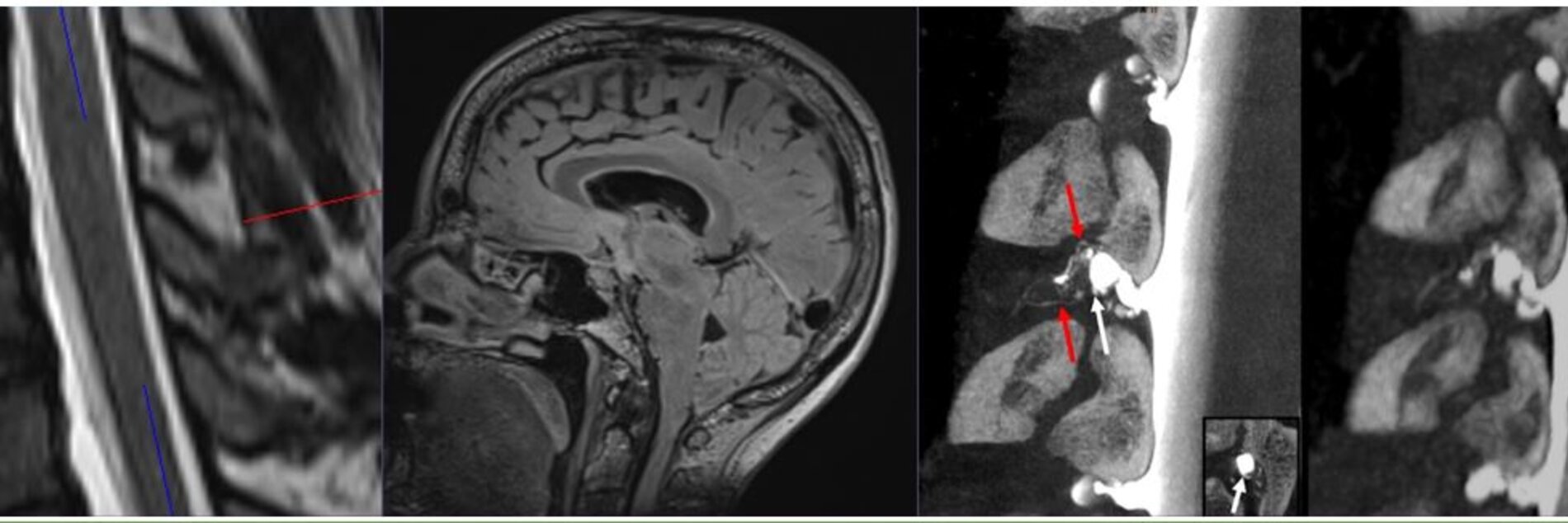Diagnostics
Spontaneous Intracranial Hypotension (SIH)The diagnostic and therapeutic approach is individually determined in our interdisciplinary CSF board. The goal is always to minimize the burden of necessary examinations, achieve an optimal outcome, and offer a long-term effective therapy.
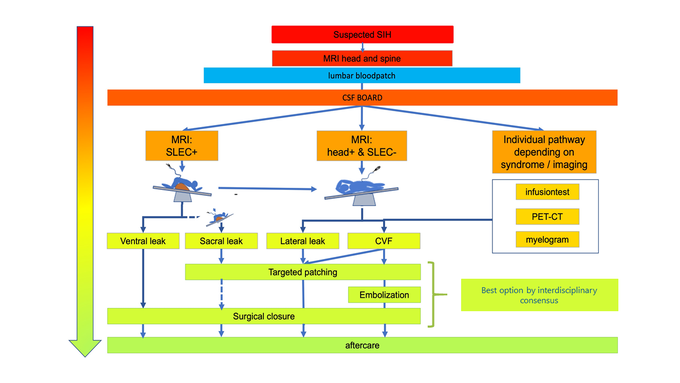
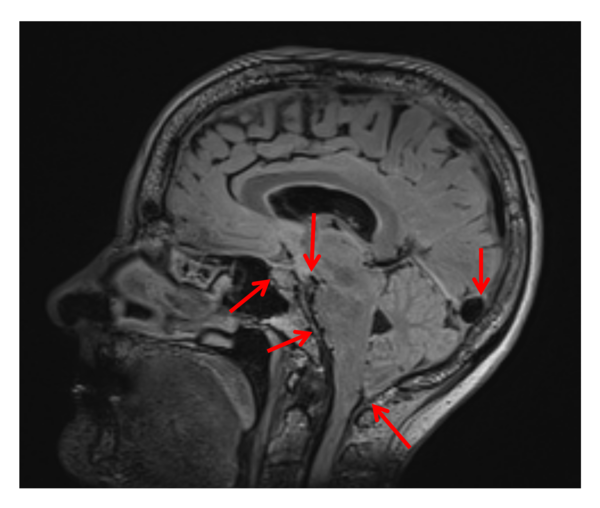
typical MRI in SIH: round sinus, brain sagging
Magnetic Resonance Imaging (MRI) - Department of Neuroradiology
We recommend the following MRI examinations when there is suspicion of SIH:
Head MRI: axial diffusion 5mm, 1mm 3D Flair, 1mm MPrage post-contrast, axial 1mm CISS or 2mm T2 fs over the orbits.
Spine MRI: axial and sagittal T2 Rare Myelogram, at least 1mm 3D T2 SPACE fs over the cervical, thoracic, and lumbar spine.
MRI can reveal indirect indications of reduced intracranial pressure. Many of these signs are included in the so-called Bern-Score (contrast enhancement of the dura, subdural fluid accumulation, dilated veins, reduced suprasellar, prepontine, and mamillopontine distances).
Be aware that these signs are often misinterpreted as conditions like meningitis or Chiari malformation.
Superficial siderosis is suspicious of a longstanding spinal cerebrospinal fluid leak.
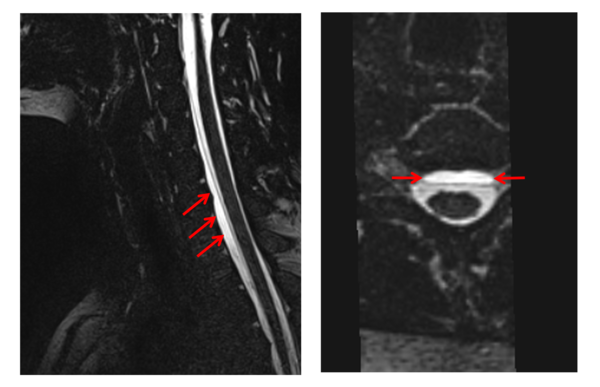
MRI of the spine with detection of spinal longitudinal extradural fluid (SLEC) (red arrows)
The detection of spinal longitudinal extradural fluid (SLEC) along the spine indicates the presence of a spinal cerebrospinal fluid leak (Type I or II), but it does not pinpoint its exact location. This cannot be determined with MRI.
MRI cannot detect the exact type and location of the spinal CSF leak. Neither the presence of a bone spur or other anatomical changes such as a herniated discs nor the maximum amount of epidural fluid provide information about the exact location. MR myelography with contrast medium also only detects the epidural fluid at most, but not the site of leakage.
Infusion Test - Department of Neurosurgery
The infusion test is an established diagnostic method for conditions caused by changes in CSF volume or surrounding structures. The examination is performed under standardized conditions by puncturing the lower spinal canal. In addition to pressure measurement, other parameters (e.g., resistance, B-waves) can be collected, providing further signs for the presence of a disorder. This test does not require additional radiation exposure.
Dynamic Myelographies - Department of Neuroradiology
Dynamic myelographies are the leading method to localize a spinal CSF leak. The principle is similar to searching for a leak in a balloon: a fluid (contrast agent) is introduced, and its distribution is observed, especially whether and where it exits.
The goal of a myelography (DSM or CT-myelography) is to precisely visualize the location and type of the leak. This is compulsory to initiate further targeted therapeutic steps.
Experience regarding positioning and timing significantly contributes to the success of leak detection.
Thanks to highly advanced techniques such as Cone-Beam CT and photon-counting CT, the methods at the Department of Neuroradiology are at the cutting edge of technology. Continuous efforts are made to minimize radiation exposure.
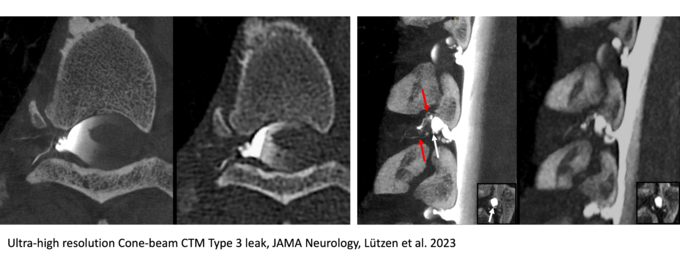
PET-CT - Department of Nuclear Medicine:
The administration of radioactively labeled substances through a lumbar puncture can aid in detecting a spinal CSF leak. (Evangelou et al. 2023).
Here, you can find guidelines for the treatment of SIH.
You can read more information about our interdisciplinary CSF team, our diagnostic capabilities, and treatment options on these pages.
You can find contact information here.
Additional informational materials and useful links can be found here.
Klinik für Neurochirurgie
im Neurozentrum
Breisacher Straße 64
D-79106 Freiburg
Telefon: 0761 270-50010 /-50020
Telefax: 0761 270-50240
neurochirurgie@uniklinik-freiburg.de
Prof. Dr. Jürgen Beck
Ärztlicher Direktor
Telefon: 0761 270-50060
International call: +49-761-270-50060
j.beck@uniklinik-freiburg.de

André Doherr
Pflegedienstleiter
Telefon 0761 270-52260
Telefax 0761 270-54200
andre.doherr@uniklinik-freiburg.de

Christian Böke
Kaufmännische Geschäftsführung Neurozentrum
Telefon: +49 761 270-21071
christian.boeke@uniklinik-freiburg.de

